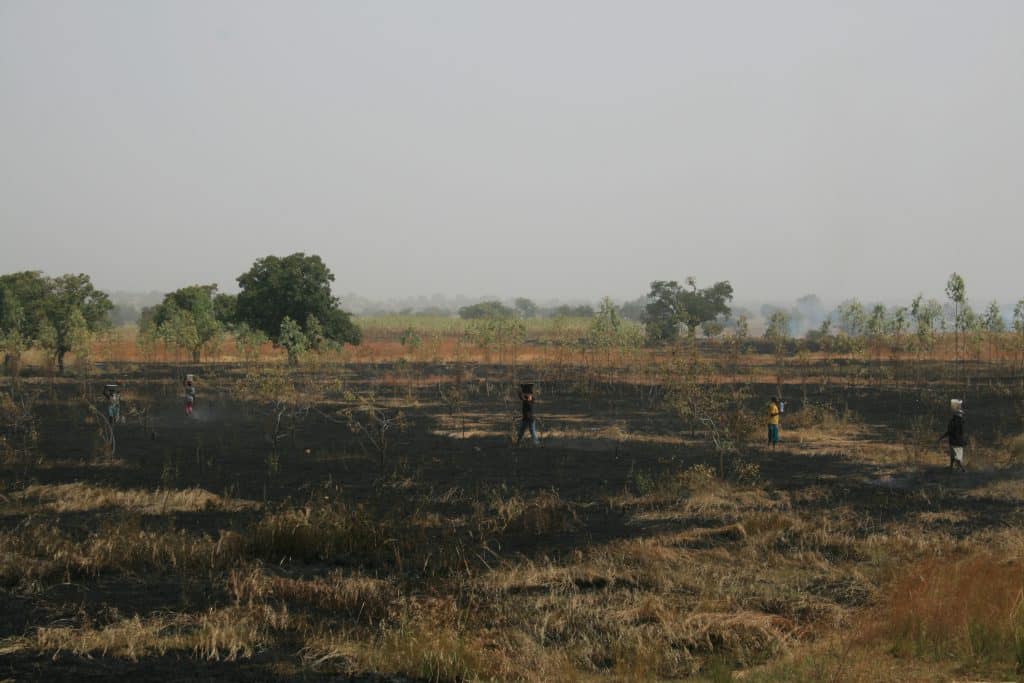This piece previously appeared in Vice Versa
CO2 emissions from the richest one per cent of the world's population are more than double those of the poorest half. This was concluded by Oxfam Novib and the Stockholm Environmental Institute in a new research. Thus, climate change remains a hugely unfairly distributed problem. During the General Political Consultations, SP party chair Lilian Marijnissen addressed 'climate justice', a term that has hardly been used in the Lower House yet, if at all. What is the Netherlands doing to realise climate justice, and more importantly, how can it be that we forget the most vulnerable?
What is climate justice?
The term climate justice has two dimensions. On the one hand, it refers to the asymmetry in contribution to climate change. This is what Oxfam is doing a great deal about with the above research. Secondly, climate justice is about vulnerability to the impact of climate change and the possibility to mitigate this impact. This plays out at Dutch, European and international levels. However, UN Secretary-General António Guterres rightly pointed out that it is the vulnerable groups in developing countries, "the poor and vulnerable", who are hit first and hardest by climate change. While they have also contributed by far the least to climate change.
Developing countries are often located in tropical regions where the effects of climate change are more pronounced. In addition, people in developing countries have much smaller incomes, houses are built of weaker materials and weather insurance does not exist. So natural disasters or prolonged periods of drought or rain are catastrophic. Also, these very countries hardly have the means to contribute and be included in the solutions.
Netherlands fails to honour agreements
Together with all rich countries, the Netherlands therefore agreed to contribute $100 billion a year to climate support for developing countries from 2020. For now, the Netherlands is not honouring the agreement. Our share of the 100 billion, also known as 'fair share', has been calculated by the Minister for Foreign Trade and Development Cooperation (BHOS) to be around €1.25 billion a year. Last week, in the National Budget, the deployment on climate finance for 2021 announced. Public climate finance amounts to about €580 million in 2021. This amount is largely included in the development cooperation budget (ODA), when it should be additional to it. This miss has the effect of excluding other international development goals.
Besides public climate funding, the Netherlands is mobilising around 600 million euros in private investment, mainly in wind power and solar panels. This seems like a nice investment, but is ultimately mainly attractive to investors in the Netherlands. These investments do not reach the people who need climate support the most. They do not want solar panels in the Netherlands, but drought-resistant crops, dykes and sturdier houses. . The Netherlands is committed to climate mitigation: limiting and/or counteracting climate change. The most vulnerable groups want climate adaptation: being protected from the effects of climate change. But that is not cost-effective and, as a result, the Dutch commitment to this is lagging far behind.
Sum
Those who have already done the addition find out that with 580 million in public and 600 million in private climate funding, the promised €1.25 billion is still not met. A mere €70 million is still missing. What makes this issue extra painful is the recently presented Dutch development cooperation (ODA) budget. Whereas the internationally agreed ODA standard is 0.7% of GNI, the commitment under this cabinet is going to drop to 0.52%: a historically low budget. In addition, the ActionAid recently showed again that due to Dutch tax policy, developing countries are missing out on another €1.8 billion a year. This sum of numerical 'aberrations' shows that the Netherlands' attempts at climate justice and fair development cooperation are still far from successful.
A trend
Returning to Lilian Marijnissen's comment "climate justice". She seemed happy to see that this term is now used more often in The Hague. However, she too followed up the term with a plea about solar panels and insulation in, precisely, the Netherlands. Where climate justice is mentioned in the Netherlands, it is about the less fortunate Dutch people who should be more central to the climate debate. An important development. But at the same time, something fundamental is forgotten, both in the actions and words discussed earlier: the huge impact of climate change on developing countries, which is far greater than in the Netherlands.
For we must not forget: the poorest in the Netherlands are still among the richest of the world. Of the poorest and most vulnerable half of the world's population, none live in the Netherlands. Where true climate justice should be about supporting the poorer and vulnerable in the Netherlands as well as in the rest of the world, Lilian Marijnissen, and with her Dutch politics, in words and deeds, seems to forget 93.5%.
By: Jurrian Veldhuizen
Photo: Jurrian Veldhuizen





